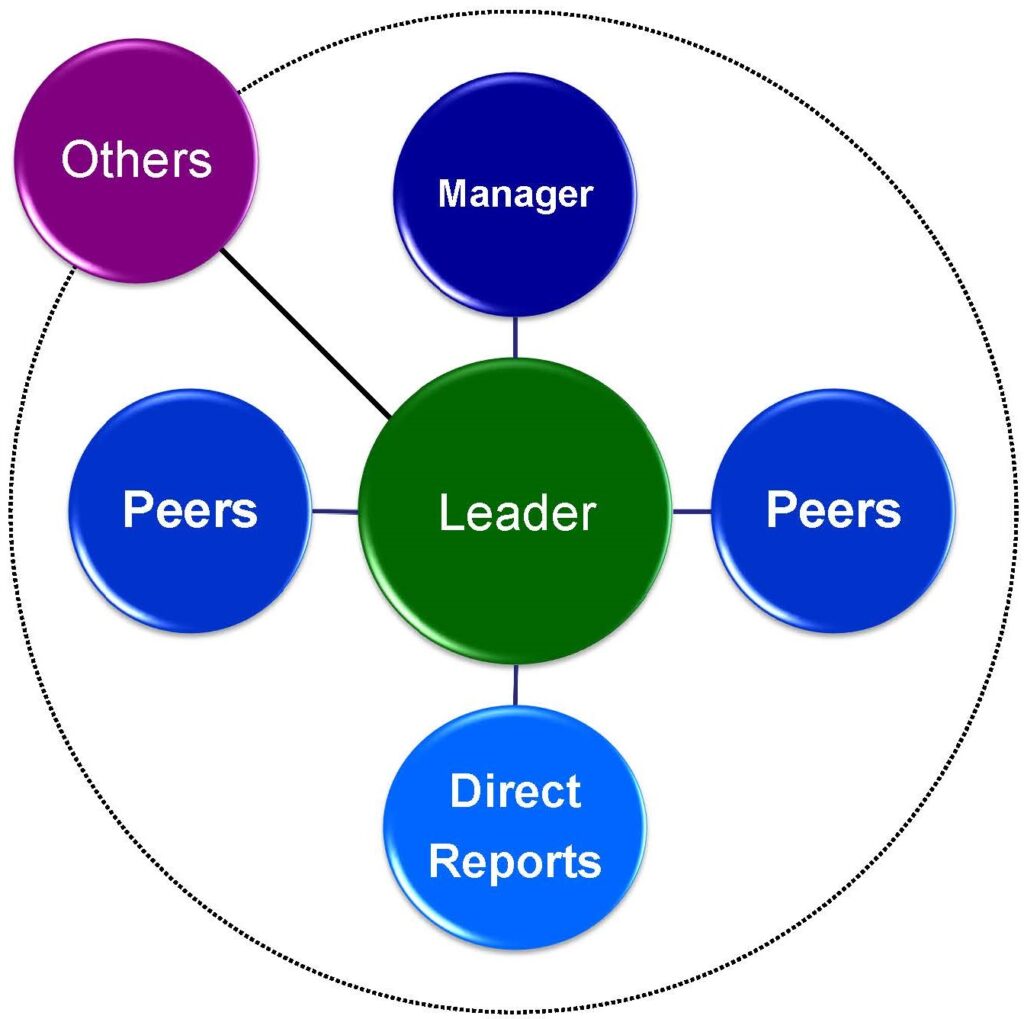
Why You Should Volunteer for 360-Feedback
You’ll learn more than just feedback.

For some leaders, being the subject of 360-feedback is like your annual check-up at the dentist. You hope no one says anything you don’t want to hear.
[For those that aren’t familiar with 360-feedback, it’s feedback you receive from everyone you work with, i.e., from everyone all around you, à la 360 degrees in a circle.)
I totally understand why some may be apprehensive about getting feedback; we all like to feel good about ourselves, and it can be difficult to hear that we’re less good than we think/hope we are. But if that’s what’s stopping you from participating in 360-feedback, you should think again.
Why you should want 360-feedback
Reason 1: You’ll know.
A popular reason some don’t want to get 360-feedback is they feel, “That’s just people’s opinions; it’s not necessarily the truth.” Well truth or not, it’s the reality that you lead in. Wouldn’t you want to know what that reality is? Ignorance can exact a heavy price.
Reason 2: You’ll demonstrate courage (particularly if you share the results of your feedback with others).
Most people understand that getting feedback can be a bit anxiety-provoking. It therefore says something about you if you choose to get feedback, and you share the results with your co-workers.
Reason 3: You’ll develop a thick skin.
If you expect to lead others, and expect everyone to like you and like what you decide, it’s time to look for a different profession. Maybe someone who gives away money to anyone who asks?
All leaders will tell you they have to tolerate (but not ignore) the naysayers, the detractors, and the overall-not-nice-but-just-plain-nasty people who make their life most unpleasant at times. Receiving negative (or what we try to smooth over with the words “corrective” or “developmental”) feedback helps tremendously in a) building stamina in the face of negativity, and b) figuring out whom you should respond to and whom you should just listen to.
Reason 4: You’ll be a better leader (in a short period of time).
The best and most painful part about feedback is that we learn things about ourselves we didn’t know. Yes, you may have to grit your teeth as you read/hear the feedback, but truthfully, wouldn’t you really want to know? See Reason 1 above. [Fans of The Matrix will choose the red pill.] And if you truly work on the things you’ve been told you could do differently or do better, guess what? You’ll get better.
What’s 12 Months?
Over 12 months, the leader had made significant change and progress. It wasn’t easy, but after receiving 360-feedback early on, they dug in, committed to the change people said was needed, and stayed focused. At the end of our work, we did follow-up 360-feedback, and the progress recounted by feedback providers was noteworthy. The leader had put in the time and effort. And the results showed.
And so, in one of our final conversations, I asked them to think back 12 months ago, when they first received the feedback. And then to compare the leader they were back then to the leader they are now. What a change.
I then said, “And what of your colleagues? Have many of them changed?”
The leader thought for a moment, and said, “No, not really.”
“Indeed” I said, “They’re just 12 months older.”
So where were you 12 months ago? And where are you now?
Is it time you volunteer for 360-feedback?
Sign up for our 60-Second ReadTM
Categories
- board of directors
- career
- career development
- change
- coaching
- communication
- compensation
- conflict
- consulting
- critical thinking
- culture
- decision-making
- education
- experiential learning
- feedback
- high potential
- hr
- immigration
- influence
- innovation
- jobs
- knowledge economy
- leadership
- leadership development
- leadership style
- learning
- management
- management development
- motivation
- selection
- self-actualization
- skills shortage
- succession planning
- talent development
- talent management
- time management
- uncategorized
